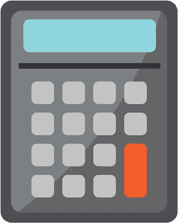Cap rates are discussed a lot in our industry, and they're an important metric to understand when evaluating a real estate investment.
Make sure you download ALL my resources for FREE at this link: https://themichaelblank.com/vault
What is considered a good cap rate for multifamily investments?
To answer that, let's break down what cap rate really means.
A cap rate, or capitalization rate, is a measurement of the cashflow that a property generates for its ownership prior to any debt on the property. It's basically a measurement of the operations of the property. So, if you bought a property for a million dollars, and it produces a $80,000 a year cashflow, you take that 80,000, put it over a million, and you have an 8% cap rate.
What does this mean for your investment?
A low cap rate corresponds with an asset that's highly desirable. So you might find a low cap rate in high end markets, like New York or Miami, markets that are growing really quickly, or markets where people are moving in and there's a big demand for housing. All of these things are going to push up people's desire to buy the property, which pushes down the cap rate. The price of the asset is going to go up.
Inversely, a high cap rate means it's a less desirable asset. A high cap rate means for that same $80,000 of cash flow. Maybe instead of paying a million dollars for it, you're gonna pay $800,000 for it. So the cap rate goes from eight to 10 in that scenario, because people are willing to pay less for it. There's an inverse relationship between the cap rate and the desirability of the asset.
What is a good cap rate?
That's a little bit of a tougher question to answer. Some of our best investments have had a zero cap rate, or a one cap rate, and the reason for that is because the cap rate is a historical looking data point. It's looking at the past performance, and in syndications and multifamily, what we're usually trying to do is find a property that has a problem, so that we can fix that problem.
If a property has a problem, it isn't producing much cashflow, and that often drives the historical numbers down. For that reason, cap rate is something that we do look at, but we don't get too focused on, because if the asset was performing perfectly, it wouldn't be a good purchase for us to buy as syndication.
Basically, we look at the cap rate as part of the situation, but we don't look at it as the entire explanation for how a property is performing.
